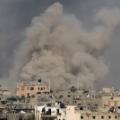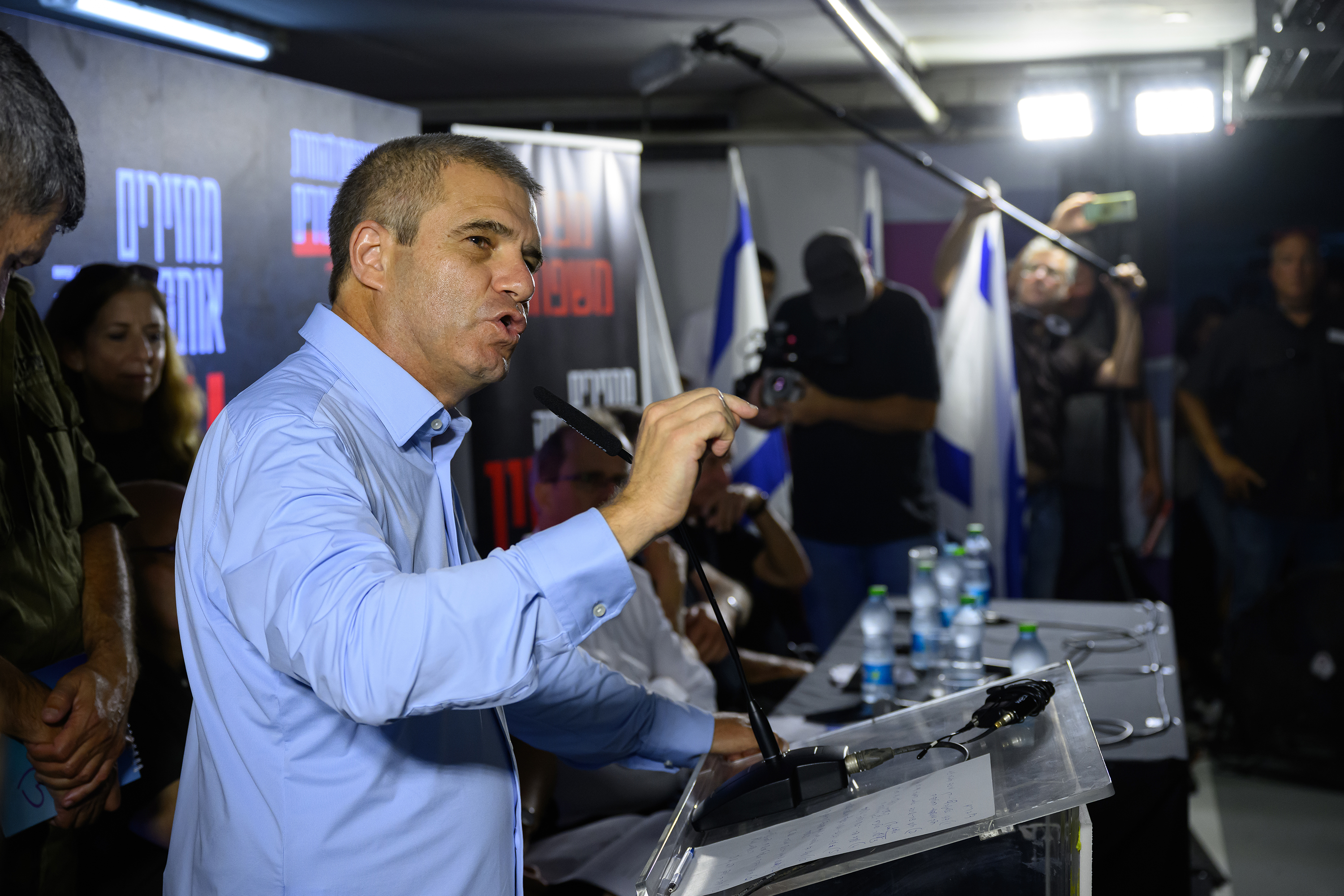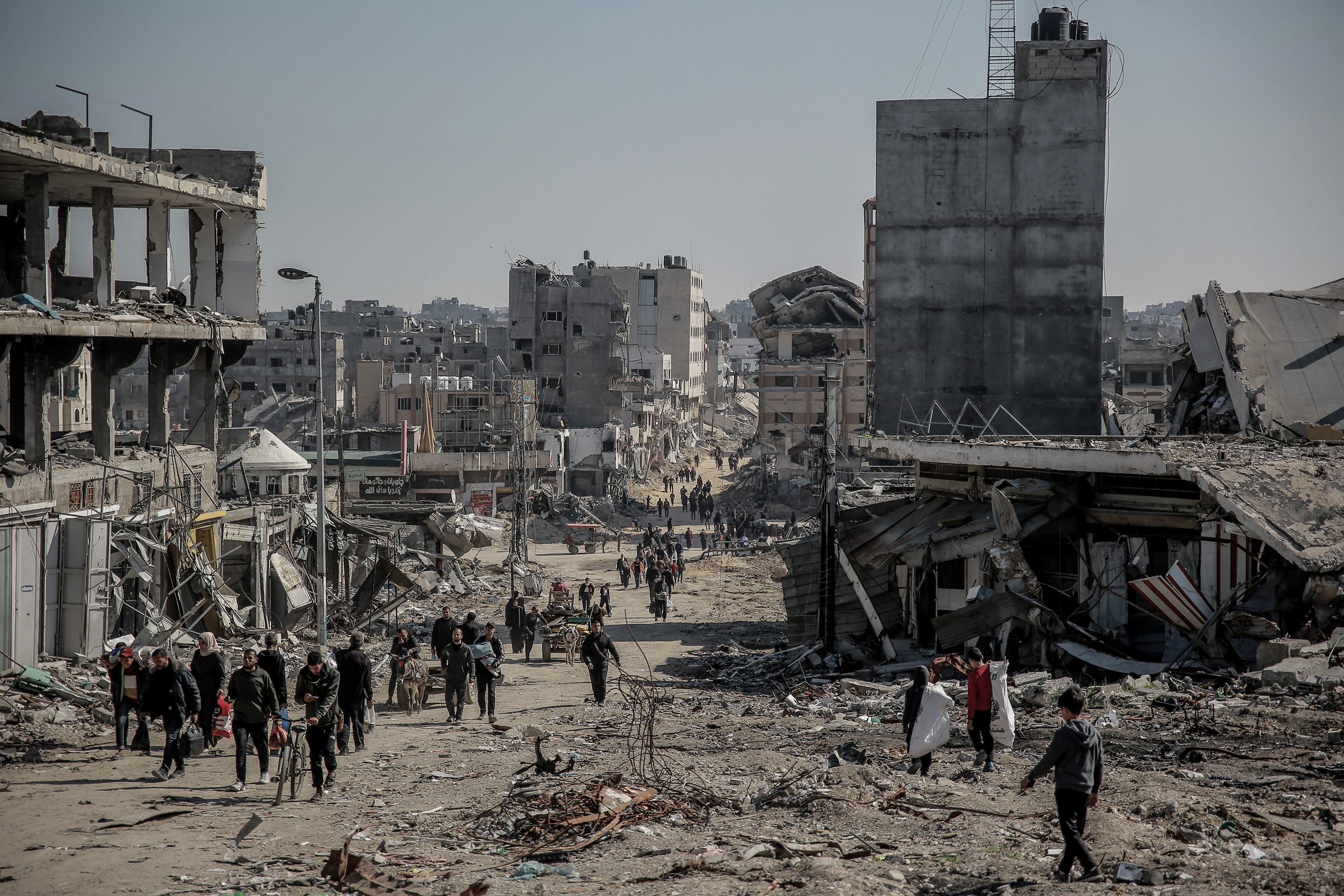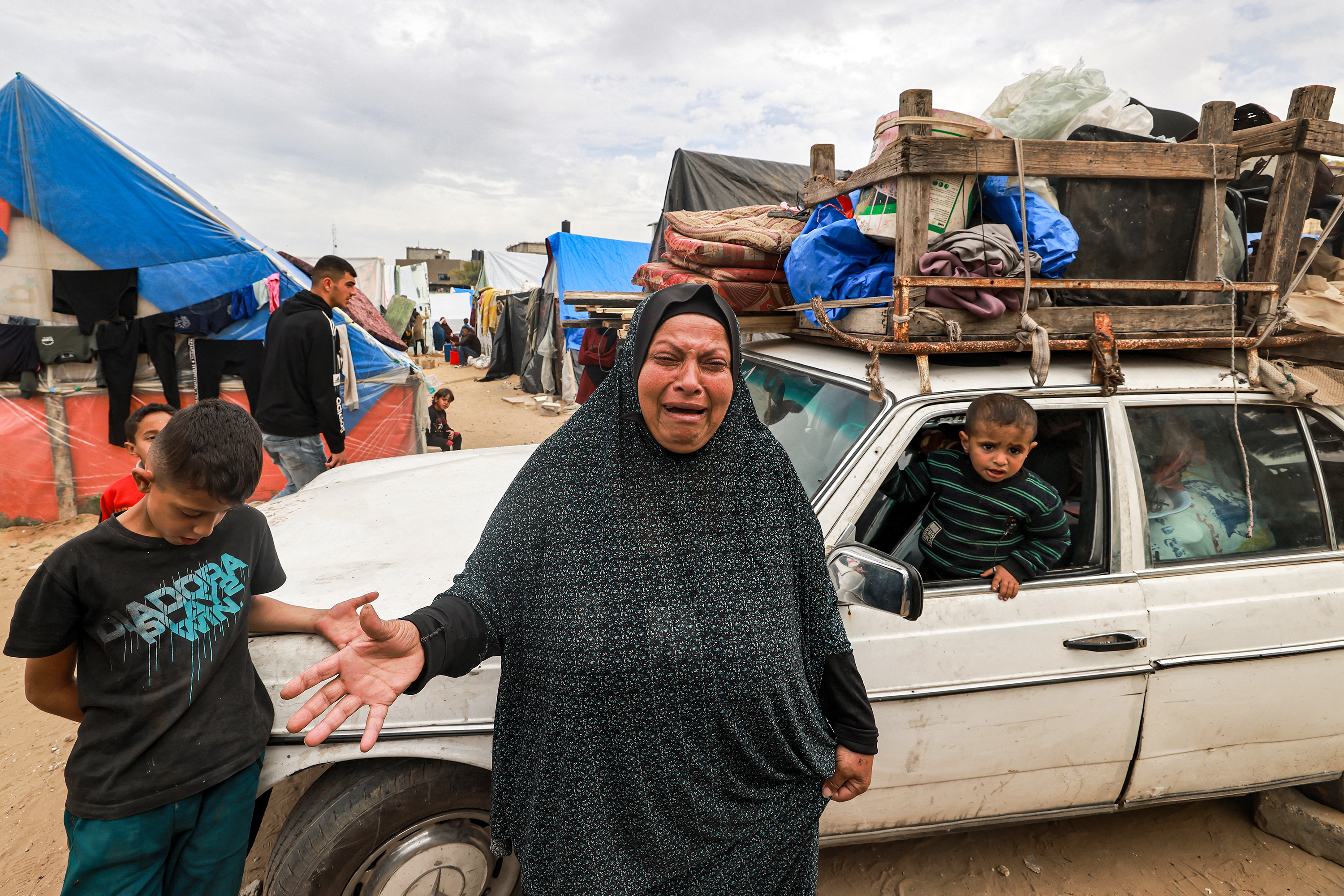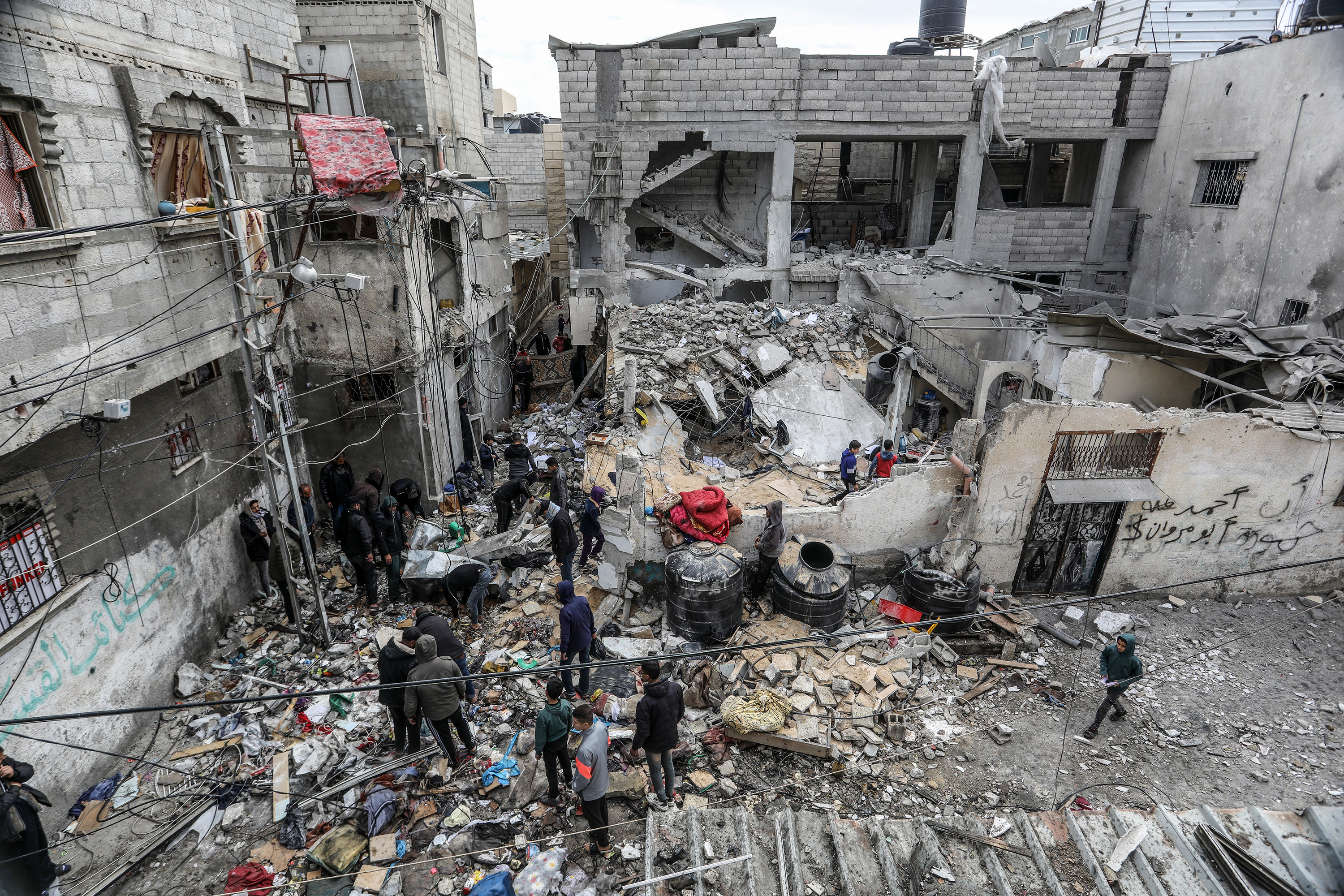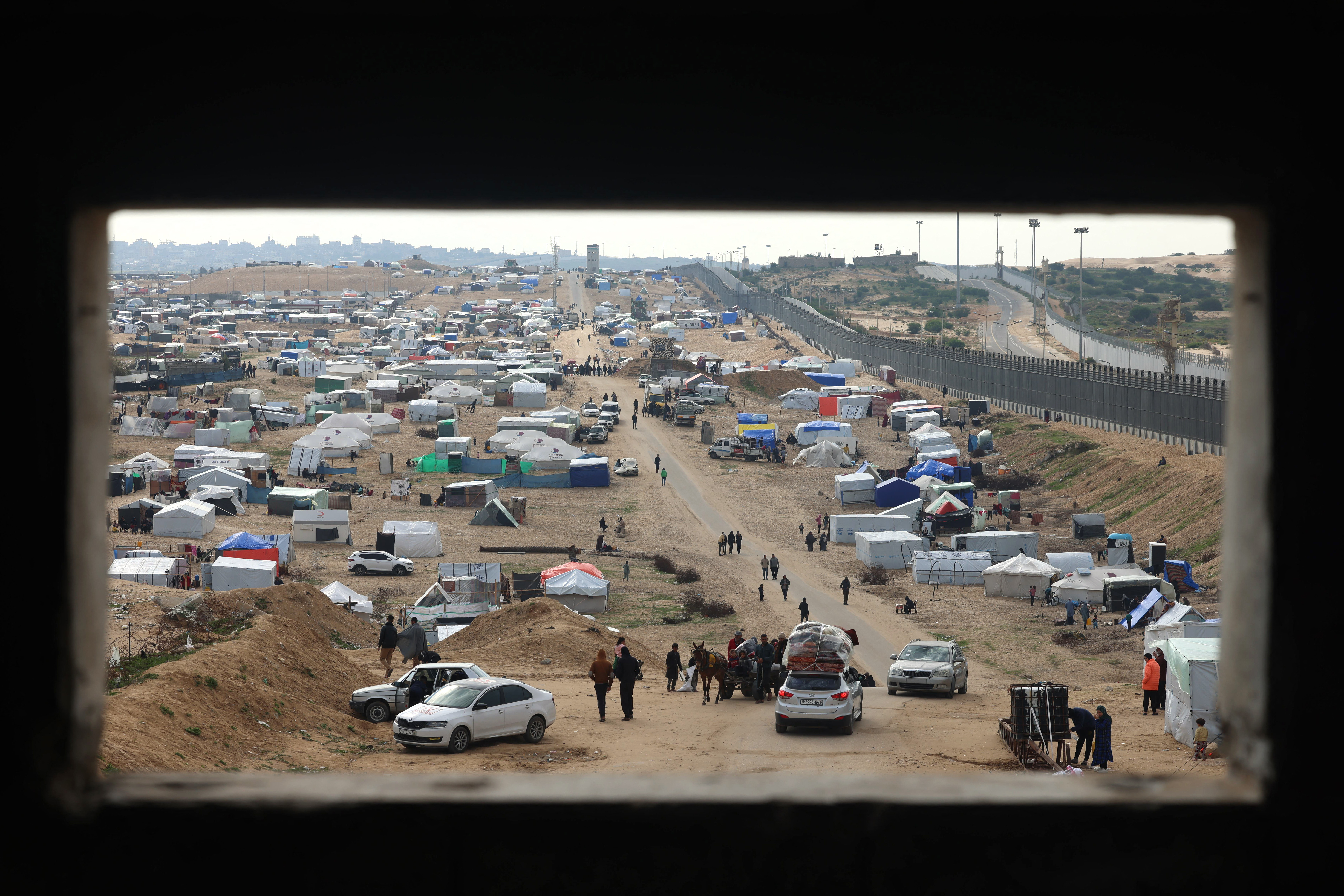
Israeli Prime Minister Benjamin Netanyahu said Saturday that his forces have a "realistic" plan for their ground operations in the crowded southern Gaza city of Rafah, where he is facing growing international pressure to protect civilians.
Roughly 1.5 million Palestinians are seeking shelter in the southern Gaza city near the border with Egypt — many of them already displaced from elsewhere in the enclave. The United Nations aid chief has said an operation there could lead to "a slaughter." Palestinians in the city say they have nowhere left to go.
“Our ability to enter Rafah has been proven as realistic,” Netanyahu said in a news conference Saturday, claiming there is room for the displaced to move north, but "we have to do it in an orderly way."
He said he told US President Joe Biden this week that, "Israel is going to fight until we reach total victory, and that includes also ground offensive in Rafah — of course after we let citizens there to evacuate to other safe places."
When Biden spoke with Netanyahu Thursday, he urged him not to proceed with operations without a "credible and executable plan for ensuring the safety of and support for the civilians," according to the White House.
On hostage talks: Netanyahu also echoed the remarks of his hostage coordinator, who told CNN on Saturday that Hamas' demands for a ceasefire and hostage release — such as stopping the war and releasing thousands of Palestinian prisoners — are "delusional."
Pressure at home: The prime minister's comments came as thousands took to the streets of Tel Aviv and Caesarea on Saturday, calling for the dismissal of Netanyahu and his government. The prime minister called for "unity," saying, "The last thing we need now is a new election."



